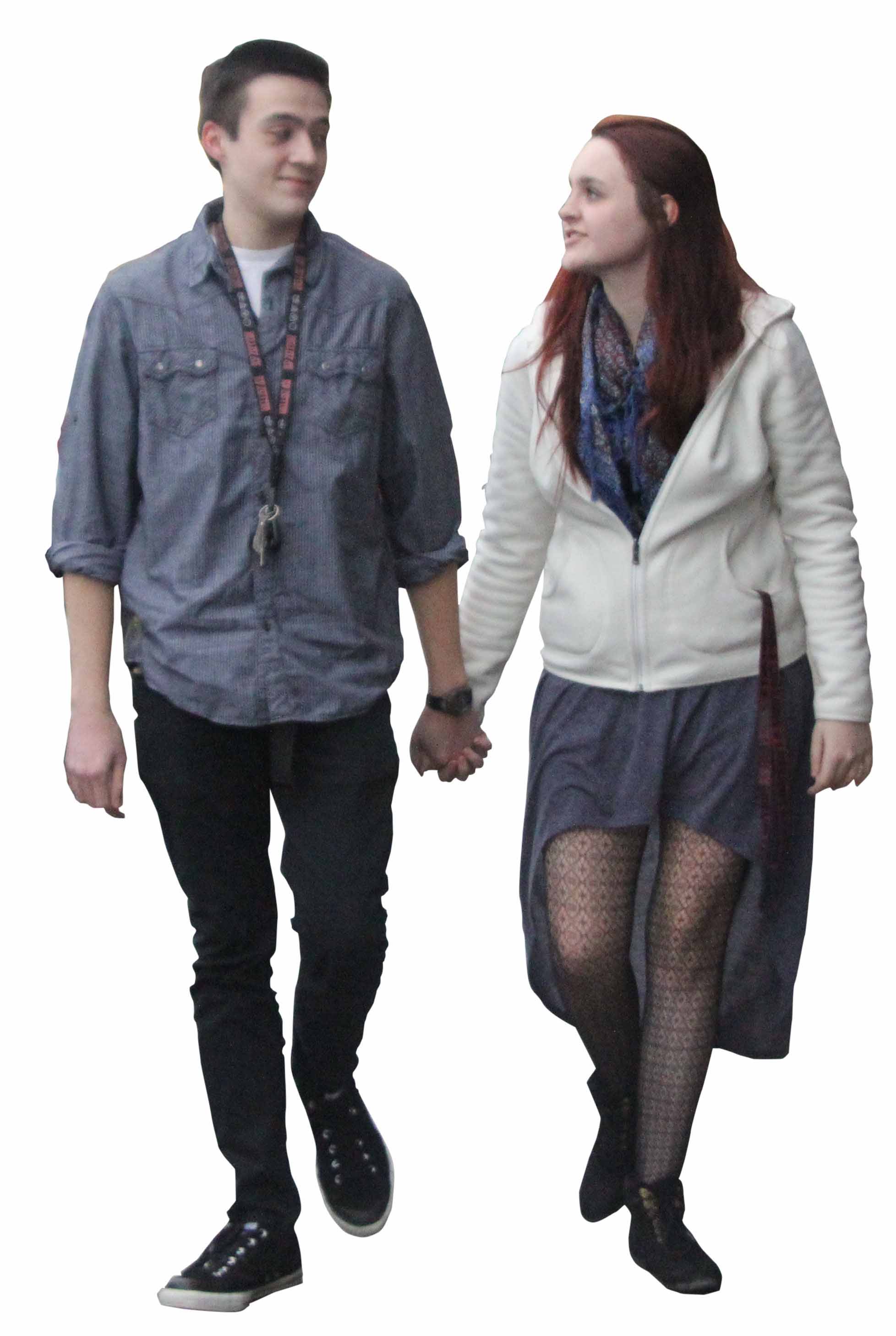By Kendra Schwartz
While most couples will be elated to receive a box of chocolates or flowers from their significant other on Feb. 14, senior Hunter Ramer and her boyfriend Evan Byers will be thrilled not to be inside a hospital room this Valentine’s Day.
At age 9, Byers was diagnosed with Crohn’s disease, a disease that causes inflammation of the digestive tract.
“There were just extreme symptoms right off the bat,” Byers said. “It was really scary, and I didn’t have any warning of it coming on, and after that it just got really bad.”
With supportive parents, Byers was able to stay strong through countless surgeries.
“Luckily, my mom was unemployed and my dad worked from home, so my mom was always with me. I was never alone in the hospital,” Byers said. “And they would always come over and visit, and their friends would come to visit, and they would bring my friends up to see me.”
His parents, Brian and Dana Byers have been overwhelmingly helpful throughout his journey with Crohn’s disease and have made a conscious effort to give their son a normal life.
“He has gone through more in 18 years than I ever will in my lifetime,” Brian Byers said. “I struggle with the balance between being compassionate and being his father. I know that his life is rough, but at the same time, I still have to do my best to raise him for the real world, which means I have to discipline him when situations call for it. But I also try to remember what he’s going through.”
Despite his condition, Evan Byers remains appreciative of the more positive aspects of his life.
“They are very understanding and comforting and strong for me. I know it’s hard for my mom. It always seemed to me since I was a young kid that it was harder for them than it was for me,” Evan Byers said. “As a young kid, I wasn’t set in a routine. I wasn’t set in my ways yet, so I was easy for me to mold to that being my life. I mean, even the surgery — I was ready for it — but my parents wanted to . . .wait until the doctors said it was necessary.”
It wasn’t until Dec. 4, 2011, however, that Ramer came into his life.
“I was aware of [his disease] when I first met him, but I didn’t realize how bad it was until the day after our first kiss, he went to the hospital,” Ramer said “I was a bit overwhelmed, but I knew I really liked him, so I visited him as soon as possible.”
Ramer visited Children’s Mercy Hospital, and although she was sad to see Byers hooked up to tubes in a hospital bed, she was excited to see him. During one of her visits, Byers informed Ramer of another patient in the room next door who never had visitors.
“It was hard, but it helped me become a stronger person,” Ramer said. “And I figured out what I want to do as a career because of it. I want to be a nurse. So it was overall worth it…I wanted to be there for kids like that who don’t have anybody.”
Now, visits to the University of Kansas Medical Center, although still frequent, are more routine for the couple.
“After surgeries…it is a really long recovery,” Byers said. “The best part about having her was that she could do a lot of stuff for me. Like I wasn’t supposed to go up and down stairs a lot and she helped me with that. And I know we can’t do a lot of stuff.”
While most teenage couples break up after one fight, Ramer and Byers conquer mature problems.
“We talk about surgery and how it might affect me in the future, and how this is possibly a reoccurring thing for the rest of my life,” Byers said.
Ramer acts as a positive influence in Byers’ life both in and out of the hospital. After numerous surgeries, Ramer provides Byers with company, both in walks around the hospital building and watching movies all day in his room.
“Anything I can do to help,” Ramer said. “I try not the let him think negatively about anything. I try to keep him as happy as possible.”
“After surgery she gets me a lot of things because I just move like an old person after surgery,” Byers said.
Despite Ramer’s help, Byers is still discouraged by recurrent hospital visits recently.
“The first surgery is called a colectomy. They took my whole colon out,” Byers said. “Then, I had an ostomy bag. Then that worked for a year, but then basically it failed. So I had to have a couple surgeries to reconstruct things back, and then I had an ostomy again. It’s been a year and a half since then, so now the problems have just been recurring.”
As a result of his disease, Byers has to be wary of common illnesses.
“Crohn’s disease is an autoimmune disease so the body attacks itself,” Byers said. “So the way to treat it is to kill the immune system, so I have a really hard time with infections.”
Although his surgeries are trying, the biggest obstacle in the eyes of Byers is missing out on time with Ramer.
“Whenever we can’t do something we want to do, it’s hard,” Ramer said. “He has really bad insomnia. Sometimes we can’t do things because he’s just too tired but that’s really not a big deal for me.”
Despite hurdles, both Byers and Ramer look to their future with optimism. With new medicine prescribed to Byers, they hope for fewer surgeries in 2014.
“I like to keep hope that it won’t be really bad forever,” Ramer said. “They’ll solve it and he’ll been in remission for a really long time.”



